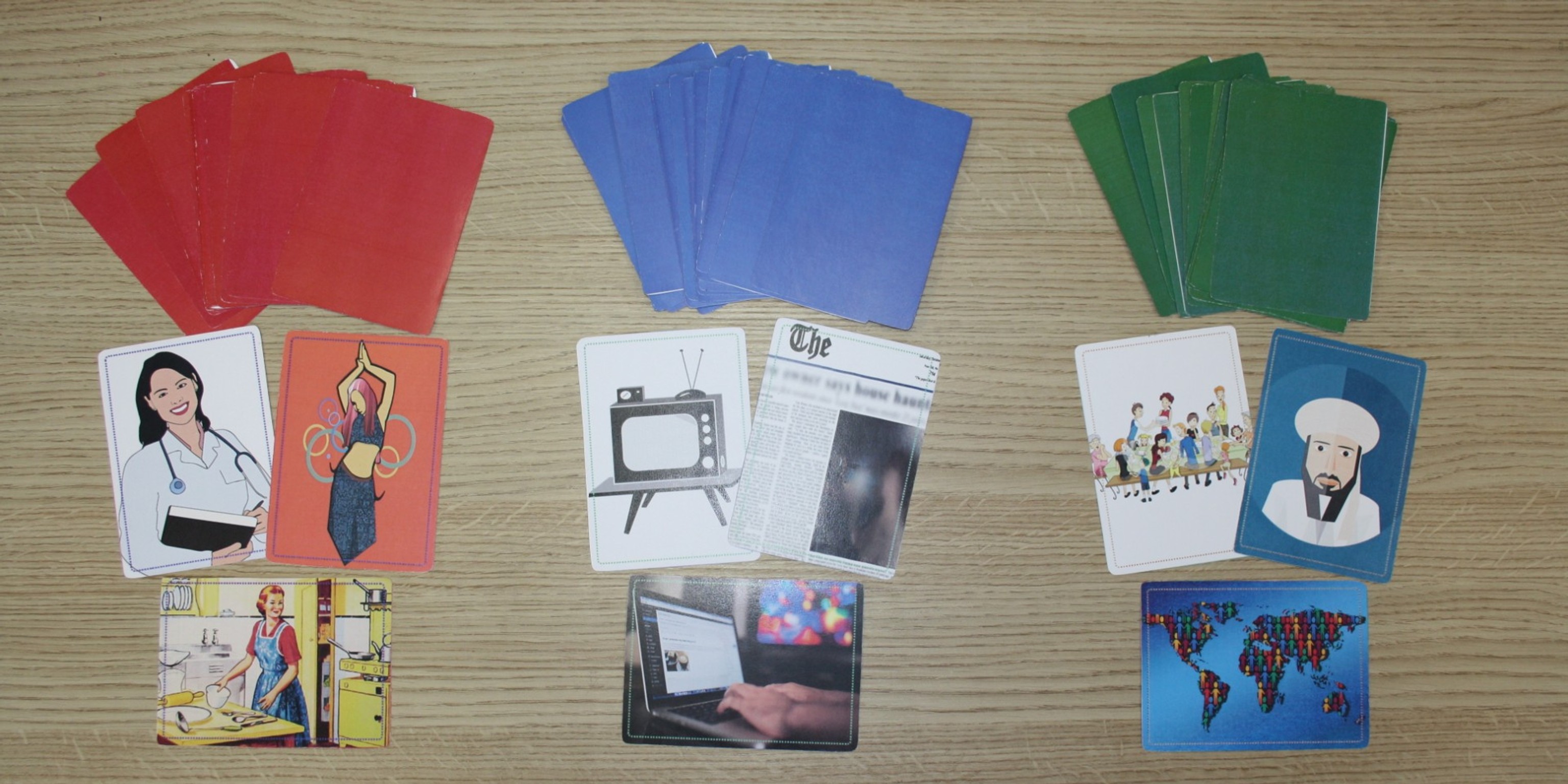
Scenario co-creation cards: A tool for eliciting values
Digital Social Innovation

Collaborators Monash University
Abstract
We look at the difficult endeavor of identifying and concreting the values held by a given population, especially where there is a cultural barrier limiting an effective discussion of them.
Method
We introduce a novel implicit method, Scenario Co-Creation Cards, and show how it can be used to incorporate existing models of culture in the value elicitation process.
Takeaways
We have demonstrated the mechanisms by which scenario co-creation cards were particularly helpful as prompts for discussions that led to expressing values explicitly and implicitly.
Values are an integral part of human identity and have a pervasive impact upon human behaviour. This makes understanding them a central concern in the design of technology, as exemplified by approaches such as Value Sensitive Design (“VSD”). Identifying and concreting the values held by a given population can be a difficult endeavor, especially where there is a cultural barrier limiting an effective discussion of them, for example in societies where freedom of expression is discouraged.
Addressing this concern requires an in-depth consideration of appropriate value elicitation methods, which responds to the fact that it is not possible to understand values detached from their cultural context.
We introduce a novel implicit method, Scenario Co-Creation Cards, and show how it can be used to incorporate existing models of culture in the value elicitation process. We demonstrate this in a case study of Saudi women’s visibility in the digital media.
We utilized an implicit approach in order to elicit a broad range of values from a population of Saudi-Arabian transnational women, a group for whom the articulation of values might be expected to be difficult. We have demonstrated the mechanisms by which scenario co-creation cards were particularly helpful as prompts for discussions that led to expressing values explicitly and implicitly.
How it works
Our research question was: how might we support Saudi women’s self-disclosure in the digital media (with minimum violation of their cultural values)?
Using cards with pictures on, participants are thus asked to draw a card from each pile (green cards for stakeholders, blue cards for media, and red cards for role) while providing a brief description of what each card could mean.
The researcher then further probes the participant to elaborate on their response as appropriate, developing their questioning based on the substantive content of the cards
Within an interview, we would expect to explore around 10-20 scenarios, with discussions lasting around 3-10 minutes.
There is one aspect where our approach is fundamentally distinctive: namely the emphasis upon a combination of using scenarios and enabling their co-creation from the aforementioned picture cards.
This paper received an Honourable Mention Award at CHI 2020.